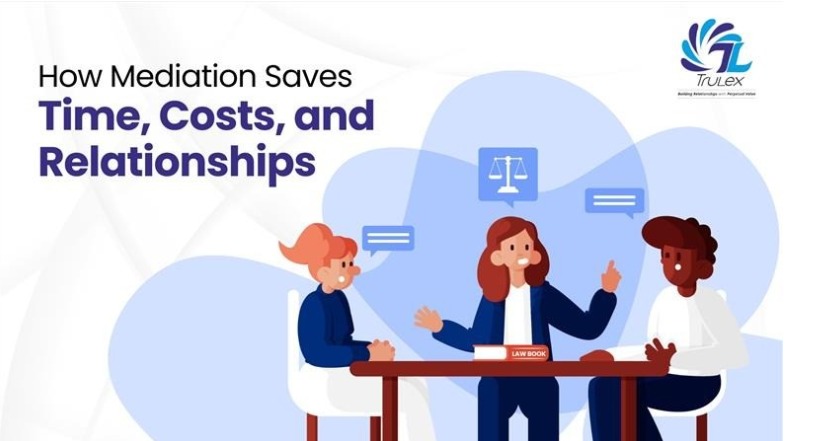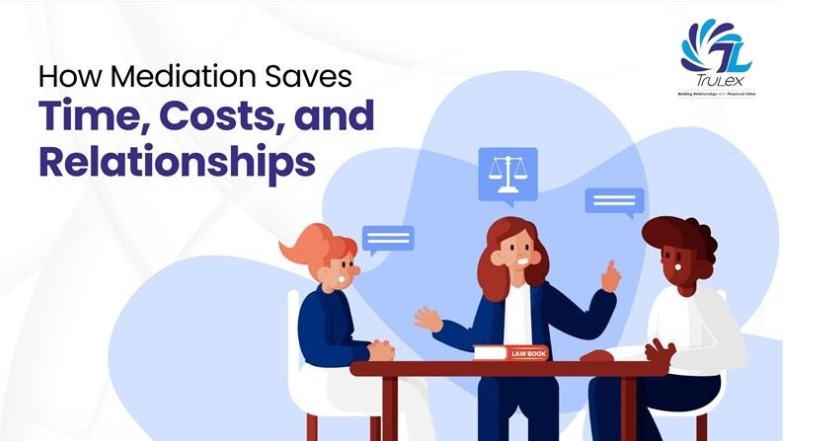In a country where courtrooms are burdened with over 5 crore pending cases, the need for efficient and amicable dispute resolution mechanisms has never been more pressing. Among the alternatives, mediation stands out, not only for its ability to reduce time and legal expenses but also for preserving relationships in ways litigation often cannot.
Whether it’s a business dispute, a family matter, or a contractual disagreement, mediation offers a compelling path forward.
What is Mediation?
Mediation is a voluntary, confidential, and non-adversarial process where a neutral third party (known as the mediator) helps disputing parties arrive at a mutually acceptable resolution. Unlike arbitration or litigation, the mediator does not impose a decision but facilitates dialogue and negotiation.
Mediation is governed by both court-annexed programs (such as under Section 89 of the Civil Procedure Code, 1908) and institutional frameworks like the Mediation and Conciliation Project Committee (MCPC) set up by the Supreme Court of India.
1. Saves Time
Litigation in India can be notoriously slow. On average:
- Civil suits take 5 to 15 years to resolve.
- Commercial disputes can stretch across multiple forums and appeals.
In contrast:
- Mediation often concludes within 2–3 sessions.
- Complex commercial mediations may take a few months, not years.
This is particularly beneficial in time-sensitive matters like:
- Business contracts
- Landlord-tenant disputes
- Family property partitions
With the new Mediation Act, 2023, even pre-litigation mediation is now mandatory for certain civil and commercial disputes, making early resolution more structured and enforceable.
2. Saves Costs
Legal fees, court filing charges, repeated adjournments, and appeal processes contribute to high litigation costs. These costs are not just financial, delayed justice can also harm reputations, business continuity, and mental well-being.
In mediation:
- The cost is typically shared between the parties.
- Fewer sessions means reduced professional fees.
- Indirect costs like travel, productivity loss, and stress are significantly lower.
For businesses, especially MSMEs, this cost advantage can be a game-changer in contract enforcement and vendor/client dispute resolution.
3. Preserves Relationships
Litigation often escalates tensions. In cases involving family, partnerships, or long-term business contracts, a court battle can permanently damage relationships.
Mediation:
- Promotes open dialogue and mutual respect.
- Encourages interest-based negotiation, not position-based argument.
- Allows parties to customize outcomes, focusing on future cooperation rather than assigning blame.
This is particularly relevant in:
- Joint family property or inheritance disputes
- Marital separations where children or shared assets are involved
- Franchise or distributor disagreements in ongoing business relationships
In many Indian cases, cultural nuances, family hierarchies, and community dynamics make mediation a more socially acceptable and less confrontational route.
4. Backed by Legal Recognition
The Mediation Act, 2023 marks a significant shift in India’s approach to dispute resolution. It provides:
- Legal enforceability to mediated settlement agreements
- A framework for pre-ślitigation mediation
- Creation of mediation councils and certified mediators
This gives parties the confidence that their mediated settlement has legal sanctity, similar to a court decree.
5. Supports Ease of Doing Business
India’s efforts to improve its Ease of Doing Business ranking depend not just on starting a business, but also on enforcing contracts. Mediation contributes directly to:
- Faster resolution of commercial disputes
- Better investor confidence
- Reduced litigation burden on businesses
Many Indian companies are now including mediation clauses in contracts to prevent escalation and maintain business continuity.
In the Indian context, mediation is a practical, cost-effective, and relationship-preserving method of resolving disputes. With legislative backing, growing institutional support, and increasing awareness, mediation is poised to play a transformative role in India’s legal and commercial landscape.
As businesses, families, and individuals increasingly seek outcomes that are faster, fairer, and less confrontational, mediation offers a clear path forward.
If you need any assistance with drafting mediation-related clauses, finding a suitable mediator, or support with any aspect of mediation or arbitration, feel free to reach out to us at legal@trulex.in — we’re here to help!



nice blog